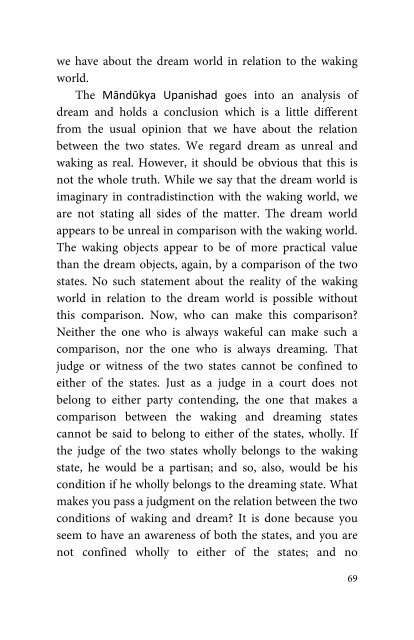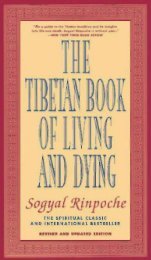Mandukya_Upanishad
Mandukya_Upanishad
Mandukya_Upanishad
You also want an ePaper? Increase the reach of your titles
YUMPU automatically turns print PDFs into web optimized ePapers that Google loves.
we have about the dream world in relation to the wakingworld.The Māndūkya <strong>Upanishad</strong> goes into an analysis ofdream and holds a conclusion which is a little differentfrom the usual opinion that we have about the relationbetween the two states. We regard dream as unreal andwaking as real. However, it should be obvious that this isnot the whole truth. While we say that the dream world isimaginary in contradistinction with the waking world, weare not stating all sides of the matter. The dream worldappears to be unreal in comparison with the waking world.The waking objects appear to be of more practical valuethan the dream objects, again, by a comparison of the twostates. No such statement about the reality of the wakingworld in relation to the dream world is possible withoutthis comparison. Now, who can make this comparison?Neither the one who is always wakeful can make such acomparison, nor the one who is always dreaming. Thatjudge or witness of the two states cannot be confined toeither of the states. Just as a judge in a court does notbelong to either party contending, the one that makes acomparison between the waking and dreaming statescannot be said to belong to either of the states, wholly. Ifthe judge of the two states wholly belongs to the wakingstate, he would be a partisan; and so, also, would be hiscondition if he wholly belongs to the dreaming state. Whatmakes you pass a judgment on the relation between the twoconditions of waking and dream? It is done because youseem to have an awareness of both the states, and you arenot confined wholly to either of the states; and no69



